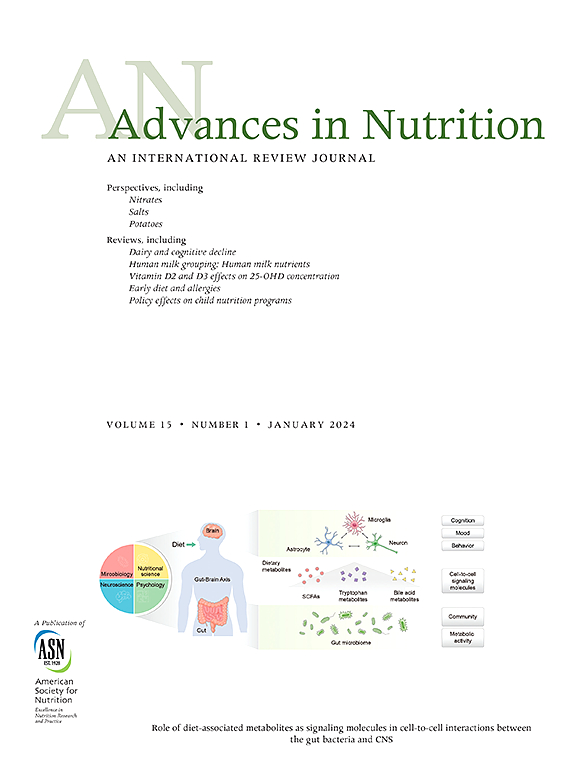在高等教育中导航粮食不安全:使用社会认知理论来确定关键影响和有效干预措施。
IF 9.2
1区 医学
Q1 NUTRITION & DIETETICS
引用次数: 0
摘要
食品不安全仍然是美国的一个重大危机,对大学生的影响是全国家庭平均水平的近四倍。影响大学食品安全的因素有很多,因此很难设计有效的干预措施。本文旨在对影响大学生食品安全的各种因素的最新研究进行全面概述。本综述以社会认知理论为指导框架,旨在确定粮食不安全的主要影响因素,解决文献中的空白,并强调可以增强弱势群体粮食安全的有效干预措施。这篇综述强调了个人/认知因素、行为和环境因素如何影响大学生的粮食不安全经历。需要有针对性的干预措施、资源和政策变革,以帮助有效解决高等教育中与粮食安全相关的挑战。本文章由计算机程序翻译,如有差异,请以英文原文为准。
Navigating Food Insecurity in Higher Education: Using the Social Cognitive Theory to Identify Key Influences and Effective Interventions
Food insecurity (FI) remains a significant crisis in the United States, disproportionately affecting college students at nearly 4 times the national household average. There are a multitude of competing factors that affect food security (FS) in college, thus making it difficult to design effective interventions. This scoping review aimed to provide a comprehensive overview of recent research exploring the diverse factors that impact FS among college students. Using the Social Cognitive Theory as a guiding framework, this review aimed to identify key influences on FI, address gaps in the literature, and highlight effective interventions that can enhance FS among this vulnerable population. This review highlights how personal/cognitive factors, behaviors, and environmental components shape college students’ experiences with FI. There is a need for targeted interventions, resources, and policy changes that can help address FS-related challenges effectively in higher education.
求助全文
通过发布文献求助,成功后即可免费获取论文全文。
去求助
来源期刊

Advances in Nutrition
医学-营养学
CiteScore
17.40
自引率
2.20%
发文量
117
审稿时长
56 days
期刊介绍:
Advances in Nutrition (AN/Adv Nutr) publishes focused reviews on pivotal findings and recent research across all domains relevant to nutritional scientists and biomedical researchers. This encompasses nutrition-related research spanning biochemical, molecular, and genetic studies using experimental animal models, domestic animals, and human subjects. The journal also emphasizes clinical nutrition, epidemiology and public health, and nutrition education. Review articles concentrate on recent progress rather than broad historical developments.
In addition to review articles, AN includes Perspectives, Letters to the Editor, and supplements. Supplement proposals require pre-approval by the editor before submission. The journal features reports and position papers from the American Society for Nutrition, summaries of major government and foundation reports, and Nutrient Information briefs providing crucial details about dietary requirements, food sources, deficiencies, and other essential nutrient information. All submissions with scientific content undergo peer review by the Editors or their designees prior to acceptance for publication.
 求助内容:
求助内容: 应助结果提醒方式:
应助结果提醒方式:


